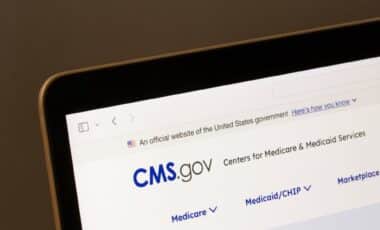In the wake of the UK’s confirmed recession and persistent cost of living challenges, low-income families are grappling with financial strain. Research from the Joseph Rowntree Foundation reveals alarming levels of food insecurity among Universal Credit recipients, with 73% experiencing such issues. As the economic backdrop remains grim, understanding the key dates for pensions and allowances this March becomes crucial for those relying on financial support.
March Financial Support: Overview and Pension Payout Dates for Low-Income Families
This March, an exploration of available benefits and allowances, including essential details on payout dates, becomes imperative for those grappling with economic challenges. The benefits include:
Usual Benefits
The usual benefits and pensions, which form a crucial financial lifeline for many individuals, include:
- Attendance allowance
- Carer’s allowance
- Disability living allowance
- Employment support allowance
- Income support
- Jobseeker’s allowance
- Personal independence payment
- Pension credit
- State pension
- Universal Credit
It’s important to note that if your payment date falls on Good Friday (29 March), you should receive your expected payment on the preceding day (28 March).
Cost of Living Payment Scheme Update
Despite ongoing economic challenges, the government has not outlined plans to extend its Cost of Living Payment scheme beyond February 2024.
According to Peter Matejic, Chief Analyst at the JRF, the government’s short-term relief through the Cost of Living Payments has provided only temporary respite for families. Without further support, families face an income safety net that offers minimal protection against the continuously rising costs of essentials like food and energy.
If eligible, the final Cost of Living Payment of £299 is scheduled to be disbursed between February 6, 2024, and February 22, 2024.
Eligible recipients of certain benefits or tax credits include individuals receiving Universal Credit, Jobseeker’s Allowance, Employment Support Allowance, Income Support, Pension Credit, Child Tax Credit, and Working Tax Credit.
This payment follows several others made throughout 2023, including:
- £301 – First Cost of Living Payment – issued between April 25 and May 17 (or May 2 to May 9 for individuals on tax credits but not other low-income benefits).
- £150 – Disability Payment – issued between June 20 and July 4.
- £300 – Second Cost of Living Payment – issued between October 31 and November 19 for most individuals.
- £300 – Pensioner Payment – issued in November 2023.
Recipients who believe they were eligible for these payments but did not receive them are advised to contact the Department for Work and Pensions (DWP).
Additional Support Beyond Cost of Living Payments
As the cost of living payments come to an end, individuals facing financial challenges can explore additional avenues of support to navigate economic uncertainties.
Local Council Assistance
The government’s Household Support Fund (HSF), concluding on March 31, has been a valuable resource. Depending on your location, there may still be time to apply. The HSF provides funding to local councils, allowing them to assist vulnerable households within their jurisdiction.
Councils have the flexibility to allocate funds in various ways, such as cash grants, supermarket vouchers, or energy bill assistance. For specific information on available help, it is advisable to visit your local council’s website. Even after the HSF deadline, some councils continue to offer discretionary assistance to households facing financial difficulties in their areas.
Charitable Grants for Financial Relief
If you find yourself grappling with financial challenges, there is potential support through charitable grants. These grants, catering to diverse circumstances, typically have specific criteria and offer limited funds.
Whether you’re dealing with disability, illness, caregiving responsibilities, bereavement, unemployment, or are a student, platforms can assist in identifying relevant grants.
Energy Provider Assistance
Several energy suppliers, including Scottish Power, Octopus, EDF, and E.ON, provide assistance to individuals facing challenges with their energy bills. To explore eligibility, it is advisable to get in touch with your energy provider.
British Gas stands out by offering a grant of up to £2,000 to customers across different energy providers. Eligibility criteria apply, and applications for this grant can be submitted through the British Gas Energy Trust website.









